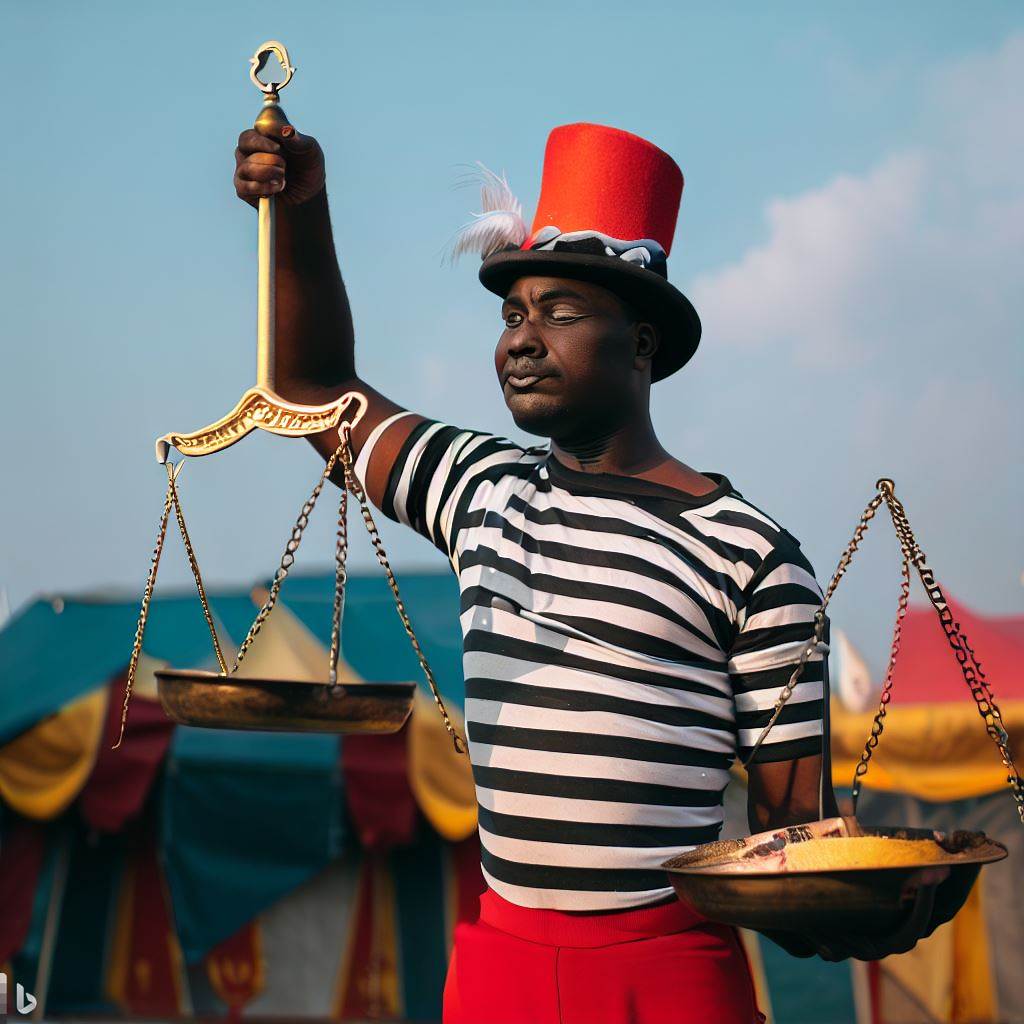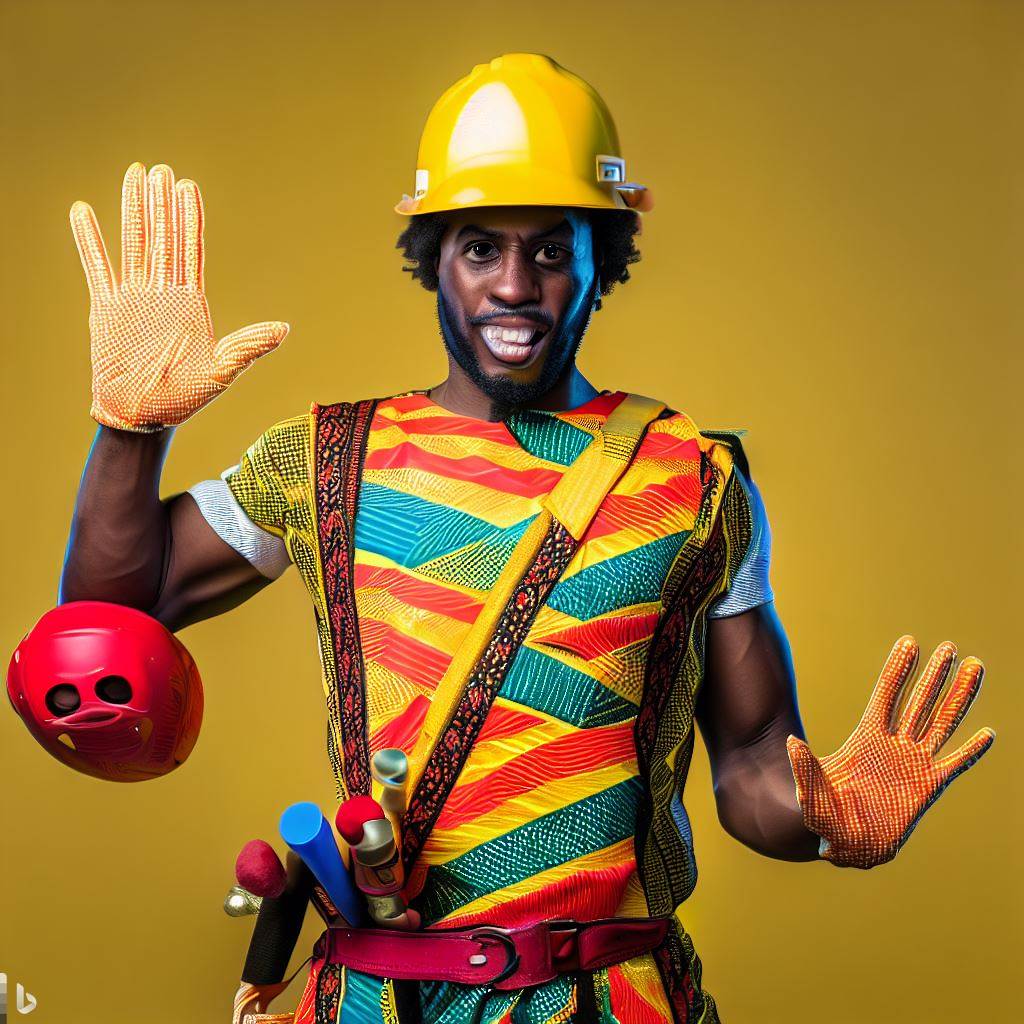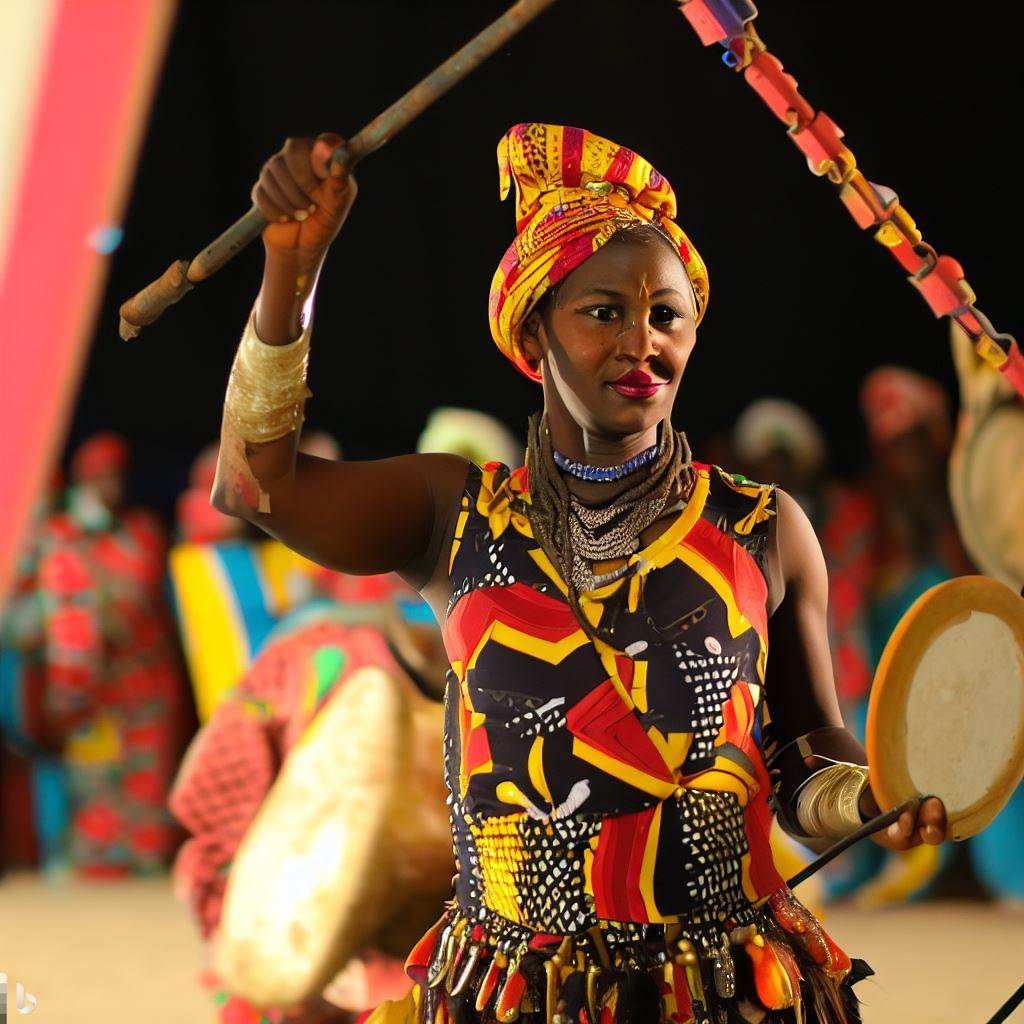Introduction
Circus performers play a significant role in Nigeria as entertainers and cultural ambassadors.
This blog section explores the laws and regulations governing circus performers in Nigeria.
The post will discuss the legal framework, licensing requirements, and challenges faced by circus performers in Nigeria.
Circus performers bring smiles, wonder, and artistic expression to Nigeria’s vibrant cultural scene. In this chapter, we delve into the often-overlooked world of circus performer laws and regulations in Nigeria:
The Significance of Circus Performers in Nigeria:
- They enrich Nigeria’s cultural tapestry, blending traditional and contemporary elements in breathtaking displays.
- Circus arts foster unity, transcending language and ethnic barriers through awe-inspiring feats.
Circus Performer Laws and Regulations in Nigeria
- Introduction of Regulations: Nigeria recognizes the importance of safety and standards in circus performances.
- Safety Measures: The regulations prioritize performers’ safety, audience protection, and animal welfare.
- Licensing and Permits: Circus troupes must obtain licenses and permits to ensure compliance with regulations.
- Inspection and Compliance: Authorities conduct regular inspections to ensure adherence to safety and ethical standards.
- Animal Welfare: Strict rules govern the treatment of animals involved in circus acts.
Roadmap for This Blog Post:
- Understanding the Role of Circus Performers in Nigeria’s Cultural Landscape
- Circus Performer Laws: Protecting Artistry and Safety
- Licensing and Compliance: Navigating the Regulatory Maze
- Animal Welfare: Ethical Considerations in Circus Performances
In this chapter, we’ll dissect the legal framework that supports and regulates circus performers in Nigeria, shedding light on the measures in place to safeguard both artists and the cherished audience.
Overview of Circus Performer Laws and Regulations in Nigeria
Circus performers and their role in the entertainment industry
Circus performers are skilled individuals who entertain audiences through various acts, such as acrobatics, juggling, and animal performances.
They play a vital role in the entertainment industry by creating awe-inspiring and captivating shows.
The need for laws and regulations in this field
Laws and regulations are necessary in the circus performer field to ensure the safety and well-being of both performers and spectators.
These regulations protect performers from exploitation and provide guidelines on fair wages, working conditions, and occupational health and safety.
The overall legal framework for circus performer laws in Nigeria
In Nigeria, circus performer laws are primarily governed by the Labor Act and regulations set forth by relevant government agencies.
These laws aim to protect the rights and interests of circus performers while promoting the development of the entertainment industry.
- Labor Act : The Nigerian Labor Act serves as the principal legislation that governs the rights and obligations of workers, including circus performers.
It establishes the legal framework for employment contracts, minimum wage, working hours, and other labor-related matters. - Nigerian Copyright Commission (NCC) : The NCC is responsible for enforcing copyright laws in Nigeria.
Circus performers have the right to protect their original acts and performances from unauthorized use or reproduction, ensuring their creative works are properly recognized and rewarded. - National Orientation Agency (NOA) : The NOA plays a significant role in raising public awareness regarding circus performers and their contributions to the entertainment industry.
They work to promote a positive perception of circus performers and educate the public about their rights and the importance of supporting their work. - Nigerian Communications Commission (NCC) : The NCC regulates the use of radio frequencies and electronic communications in Nigeria.
This regulatory body ensures that circus performers can access appropriate communication channels for advertising their shows and reaching their target audience effectively. - Occupational Safety and Health Act : The Occupational Safety and Health Act provides guidelines to protect circus performers from workplace hazards.
It sets standards for safety equipment, training, and risk assessment to minimize the occurrence of accidents or injuries during performances.
Therefore, it’s highly recommended that circus performers, event organizers, and employers seek legal counsel and
consult with relevant government authorities to ensure compliance with all applicable laws and regulations.
Read: The Economics of Music in Nigeria: A Deep Dive
Licensing and Registration Requirements for Circus Performers in Nigeria
The process of obtaining a license as a circus performer
Obtaining a license as a circus performer in Nigeria involves several steps:
- Submit an application to the relevant regulatory body.
- Provide documents such as identification, proof of training, and medical fitness.
- Pay the required fees for processing the application.
- Undergo a thorough evaluation of skills and abilities.
- Attend an interview to assess the applicant’s understanding of safety procedures.
- If approved, receive the license and adhere to the conditions set by the regulatory body.
The specific requirements set by regulatory bodies
The regulatory bodies in Nigeria have specific requirements for circus performers, including:
- Minimum age of 18 years to apply for a license.
- Proof of training and certification from recognized circus schools or institutions.
- Valid identification documents such as a passport or national identity card.
- Evidence of medical fitness and a clean bill of mental and physical health.
- Demonstration of proficiency in specific circus skills, such as acrobatics or aerial acts.
- Compliance with safety standards and willingness to undergo periodic inspections.
The importance of registration and the implications of non-compliance
Registration as a circus performer in Nigeria is crucial for both individuals and the industry as a whole
- Ensures that performers are trained professionals who prioritize safety and adhere to standards.
- Protects the reputation of the circus industry by regulating the quality of performances.
- Provides legal recognition and support for performers in case of accidents or disputes.
- Fosters trust and confidence among circus organizers, audiences, and stakeholders.
Non-compliance with licensing and registration requirements can have serious consequences
- Performers may face legal penalties, including fines or imprisonment.
- Organizers may be held accountable for hiring unlicensed performers, leading to reputational damage.
- Audiences may be at risk of witnessing unsafe performances and potential accidents.
- The industry’s growth and development may be hindered due to a lack of professionalism and standards.
By fulfilling licensing and registration requirements, circus performers in Nigeria can ensure their own safety and contribute to the overall growth and positive image of the circus industry.
Read: Essential Skills for Becoming a Cinematographer in Nigeria
Safety Standards and Guidelines for Circus Performers in Nigeria
The safety concerns associated with circus performances
- Circus performers face various physical risks due to the nature of their acts.
- High wire acts and aerial performances pose a risk of falls and injuries.
- Fire acts and pyrotechnics can lead to burns and accidents if not handled properly.
- Dangerous animal acts can result in injuries or even fatalities.
- Acrobats and contortionists are prone to musculoskeletal injuries.
- Overall, circus performances demand a high level of physical skill and precision, increasing the risk of accidents.
The safety standards and guidelines set for circus performers
- The Nigerian government has established the National Safety Committee for Circus Performers (NSCCP).
- The NSCCP develops safety standards and guidelines specific to circus performances.
- The safety standards cover areas such as equipment maintenance, rigging, and performance spaces.
- All circus performers are required to undergo safety training and be certified by the NSCCP.
- Performers must adhere to the guidelines related to performing techniques and safety precautions.
- Proper emergency response procedures must be in place to address potential accidents or mishaps.
- The NSCCP conducts regular inspections to ensure compliance with safety standards.
The enforcement mechanisms for ensuring compliance with safety regulations
- The NSCCP works in collaboration with local authorities to enforce safety regulations.
- Circus owners and organizers are responsible for implementing and maintaining safety measures.
- Regular safety audits are conducted to assess compliance with established guidelines.
- Non-compliance with safety regulations can lead to fines, suspension, or revocation of permits.
- Performers have the right to refuse to participate in any act deemed unsafe or in violation of the guidelines.
- Whistleblower protections are in place to encourage reporting of safety violations.
- The NSCCP encourages public awareness and education about safety concerns in circus performances.
Safety standards and guidelines play a crucial role in maintaining the well-being of circus performers in Nigeria.
The identified safety concerns highlight the inherent risks involved in circus acts, such as falls, burns, or injuries from animals.
The NSCCP’s efforts in establishing safety standards, conducting inspections, and enforcing compliance are vital for minimizing accidents and promoting performer safety.
By ensuring that circus performers receive proper training, equipment maintenance, and adherence to established guidelines, Nigeria aims to protect the physical integrity and welfare of circus artists.
Read: Top Artists’ and Performers’ Managers in Nigeria Today

Working Conditions and Employment Rights for Circus Performers in Nigeria
The typical working conditions for circus performers in Nigeria
- Circus performers in Nigeria often work in temporary structures or tents.
- The working environment is challenging due to limited resources and inadequate facilities.
- Performers face long hours of training and rehearsals, often under harsh weather conditions.
- Safety measures and proper equipment may be lacking, increasing the risk of accidents and injuries.
- Performers may travel extensively within Nigeria, performing in different cities and towns.
The legal protections in place to ensure fair treatment of performers
- The Nigerian labor laws provide legal protections to circus performers.
- Performers are entitled to fair treatment, non-discrimination, and safe working conditions.
- Employers are required to provide performers with written contracts outlining terms and conditions.
- Performers have the right to receive their agreed-upon salary and benefits promptly.
- Employers must comply with taxation and social security obligations for their performers.
The rights and benefits afforded to circus performers under Nigerian labour laws
- Circus performers have the right to a safe and healthy working environment.
- They have entitlement to reasonable working hours and rest breaks.
- Performers have the right to participate in trade unions and engage in collective bargaining.
- They have protection against unfair dismissal and have access to dispute resolution mechanisms.
- Performers may be entitled to benefits such as medical insurance, pension, and maternity leave.
In Nigeria, circus performers face challenging working conditions, including inadequate facilities and limited resources.
However, they are protected by labor laws that ensure fair treatment, non-discrimination, and safety.
These laws also guarantee their rights to reasonable working hours, trade union participation, and access to dispute resolution.
Circus performers may also enjoy benefits such as medical insurance, pension, and maternity leave.
It is crucial for performers and employers to understand and adhere to these laws to create a safe and fair working environment for all.
Read: Becoming an Agent: Pathways in Nigeria’s Art Scene
Challenges and Issues in Circus Performer Laws and Regulations in Nigeria
The existing challenges and issues faced by circus performers
- Lack of specific laws: Circus performers in Nigeria face challenges due to the absence of dedicated legislation addressing their profession.
- Limited recognition: The lack of formal recognition for circus performers hampers their rights and protection under the law.
- Occupational safety concerns: Performers often face unsafe working conditions, inadequate equipment, and minimal workplace safety policies.
- Lack of financial stability: Many circus performers struggle to secure consistent income and face financial instability.
Potential improvements or reforms needed in the legal framework
- Adoption of dedicated legislation: Nigeria should develop specific laws recognizing and regulating the rights and conditions of circus performers.
- Establishing safety regulations: The legal framework should include stringent occupational safety regulations to protect performers from harm.
- Ensuring fair compensation: Reforms must address fair wages, timely payments, and proper employment contracts to safeguard performers’ financial stability.
- Access to healthcare: The legal framework should emphasize providing comprehensive healthcare coverage to circus performers.
- Encouraging professional training: Policies should promote professional training and skill development opportunities for circus performers.
- Creating a regulatory body: Establishing a governing body can oversee and enforce the legal framework, ensuring compliance and protection for performers.
The role of advocacy and civil society in addressing these issues
- Raising awareness: Advocacy groups and civil society organizations can educate the public about the challenges faced by circus performers.
- Influence policy: By engaging with policymakers and authorities, advocacy groups can push for necessary reforms and improvements in the legal framework.
- Legal support and representation: Providing legal assistance and representation to circus performers allows them to address unfair treatment effectively.
- Capacity building: Advocacy groups can conduct workshops and training sessions to empower performers with knowledge about their rights and legal recourse.
- Ensuring accountability: Civil society can monitor the implementation of regulations, hold authorities accountable, and report any violations.
- Promoting inclusion and acceptance: By challenging societal biases and stereotypes, advocacy groups can help foster a more inclusive environment for circus performers.
Circus performers in Nigeria face numerous challenges and issues due to the absence of dedicated laws and regulations.
These issues include limited recognition, occupational safety concerns, financial instability, and social stigmatization.
Advocacy groups and civil society organizations play a crucial role in raising awareness, influencing policy, providing legal support, and promoting inclusion to protect the rights and well-being of circus performers.
Conclusion
Recap on the main points discussed in the blog post
In this blog post, we explored the laws and regulations surrounding circus performers in Nigeria. We discussed the licensing requirements, safety standards, and the need for proper insurance coverage.
The importance of maintaining and improving circus performer laws and regulations in Nigeria
Maintaining and improving circus performer laws and regulations in Nigeria is crucial for the safety and welfare of both performers and audiences.
By ensuring strict compliance with these laws, we can prevent accidents and protect the rights of performers.
As members of society, it is our responsibility to advocate for the rights and well-being of circus performers.
We should push for stronger laws, stricter enforcement, and continuous improvement in this industry.
By doing so, we can create a safer and more supportive environment for circus performers in Nigeria. Let’s work together to make a difference!




